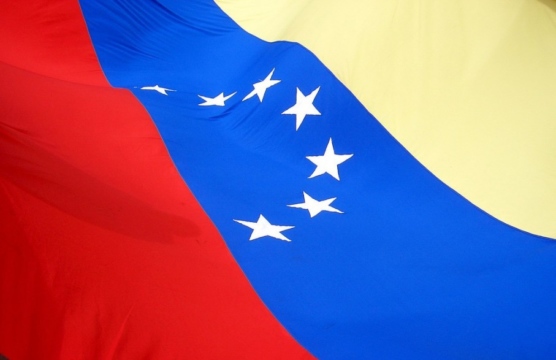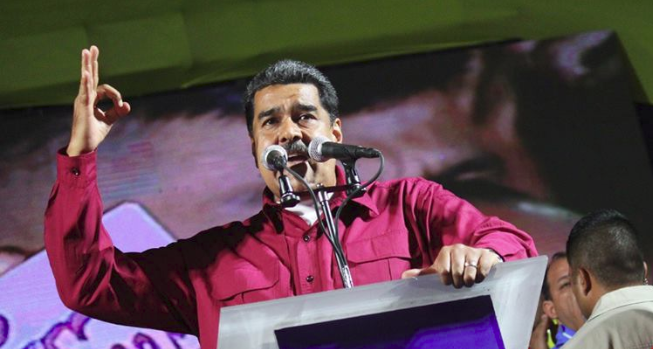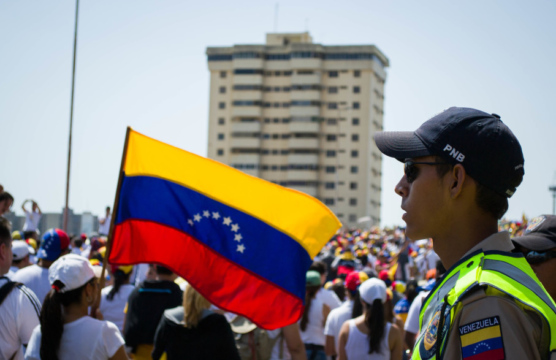
Falling Oil Prices Push Venezuela, Maduro Closer to the Edge
With crude oil prices down 25 percent since June and holding at roughly $86 a barrel on Tuesday, Venezuela is getting nervous.
A Daily Publication of The Dialogue
President Nicolás Maduro was declared the winner of Venezuela's presidential election on Sunday in a vote that Maduro’s critics said was rigged in his favor. The vote was held as the Andean nation is plagued by food and medicine shortages, hyperinflation, a skyrocketing murder rate and an outmigration crisis. Was the election indeed a sham as the opposition and international critics of the government claimed would be the case? To what extent has the vote strengthened Maduro’s grip on power? What can Venezuelans expect now? What actions should international governments and NGOs take in order to help the crisis-wracked nation?
Michael Shifter, president of the Inter-American Dialogue: "It is hard to take Venezuela’s recent presidential election seriously. As expected, the contest was indeed a sham. There were myriad irregularities reported and violations of basic standards for free and fair elections. The Venezuelan opposition and much of the international community got it right. The high abstention rate undercuts Maduro’s claim to legitimacy and can be construed as a win for the opposition. That said, at least for the time being, Maduro’s grip on power appears to be secure. He retains control of all key institutions, including the Electoral Council, courts and media, and so far it is difficult to discern cracks in the ruling clique and the military sufficiently significant to pose a threat to his rule. To be sure, with a collapsing economy, Maduro’s position is unsustainable, and eventually there will be a transition. However, his capacity to hold on should not be underestimated. The opposition is in a tough spot and lacks effective leadership. Although the oil sector is in free fall, it still produces almost 1.5 million barrels a day, allowing the country to limp along. Venezuelans should be ready for continued deterioration and heightened repression. U.S. sanctions are likely to escalate, though to date there has been virtually no impact on the regime’s behavior. The international community should stand united in condemning the Venezuelan government and intensify and sustain political and diplomatic pressure for the restoration of democratic rule. The Venezuela crisis should get priority attention at the OAS General Assembly in early June."
Julia Buxton, professor of comparative politics at the School of Public Policy of Central European University in Budapest: "The conditions of this election were not free and fair. But the results demonstrate an opportunity squandered by the main opposition parties by its boycott. Maduro won 68 percent, according to the CNE. However, factoring in abstention, Maduro had the votes of approximately 25-28 percent of the eligible electorate. This is slightly above his approval ratings over the last couple of years, but clearly he did not extend out of the core ‘Chavista’ vote or encroach upon the center ground that was pivotal for Chávez’s sweeping victories in the 2000s. There will be question marks over his legitimacy, and this may galvanize rancor within the ruling PSUV and the military. But most importantly for the government, their loyalist base has been mobilized, and PSUV supporters will defend this election process and Maduro as external pressure now ratchets up. The United States, Canada and some South American countries will not recognize the result, but that brings us no closer to resolution of Venezuela’s crisis. As expected, Maduro capitalized on U.S. sanctions during the campaign and spun this as imperialist aggression. In the event the United States does introduce further sanctions or measures in the oil sector, the impacts on ordinary Venezuelans will be severe—and again without getting us any closer to reversing exodus and deterioration. Progress to peace and stability has to bring China, Russia and Cuba into the frame—difficult though this will be for the United States. But the reality is that the inter-American system has failed to prevent, contain or reverse Venezuela’s decline."
Gustavo Roosen, president of IESA in Caracas: "Venezuelan voters have historically exhibited very high participation in presidential elections, reaching 80 percent of the electorate in the past. Sunday’s election had just 46 percent turnout, according to Maduro’s government. Indeed, if we take into consideration the coercion of public employees, the blackmail concerning the CLAP food donations within the ruling party’s so-called ‘red spots’ located near the polling stations, the turnout was likely less than 30 percent. Some international observers think it was even lower. The international community has stopped believing in democracy in Venezuela. Most opposition leaders are suffering from persecution, injustice, exile and imprisonment. Maduro’s government and the ruling PSUV party are facing a crisis after this election. The military must carefully observe the message of civil society and the almost universal position of the international community, which is determined to ignore this electoral process. This will surely happen one way or another, and Venezuela’s economic exclusion will continue. Likewise, new and stronger measures will be imposed on government officials accused in acts of corruption, money laundering, drug trafficking and terrorism. This exclusion will suffocate the government or will place it in a position to negotiate an exit. When hunger overcomes fear, Venezuela will be ready for a transition."
The Latin America Advisor features Q&A from leaders in politics, economics, and finance every business day. It is available to members of the Dialogue's Corporate Program and others by subscription.
With crude oil prices down 25 percent since June and holding at roughly $86 a barrel on Tuesday, Venezuela is getting nervous.
Can the government led by Nicolas Maduro survive the wave of street protests that have spread throughout Venezuela over the past two weeks?
Deadly protests, the largest since President Nicolás Maduro’s election last year, have wracked Venezuela in recent weeks.

